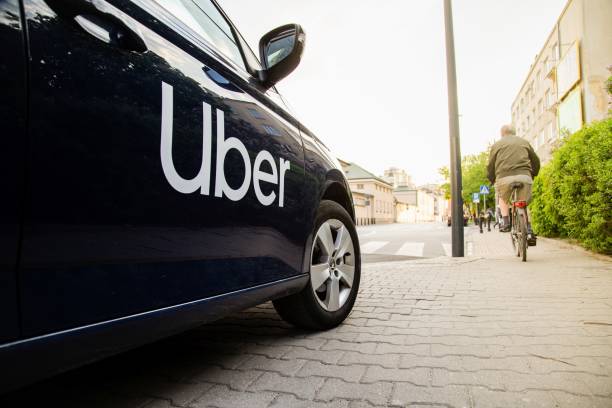News
US: New rules to independent contractors
Uber and Lyft have won a court case in California that allows them to continue treating their workers as independent contractors. The California appeals court ruled that Proposition 22, which labour groups and some workers opposed, was mostly constitutional. This ruling reverses a decision made by a lower court in 2021. Both the state of California and a group representing Uber, Lyft, and others have appealed the decision. The global gig economy, which includes services such as food delivery and transportation, employs tens of millions of people. As the industry grows in size, firms like Uber and Lyft have faced increased scrutiny. Meanwhile, the US government's proposal to change the classification of workers from independent contractors to employees has caused shares in firms like Uber and Lyft to drop by over 10%.
Advertisement

Uber and Lyft have won a court case in California allowing them to continue to treat their workers as independent contractors. The California appeals court ruled that Proposition 22, which labour groups and some workers opposed, was mostly constitutional. Opponents of the proposition argued that it deprived workers of benefits like sick leave, while the companies said it provided other benefits such as flexibility. This ruling reverses a decision made by a lower court in 2021, which said that Proposition 22 limited the ability of lawmakers to set standards in the workplace. Both the state of California and a group representing Uber, Lyft and others have appealed the decision.
The both companies can continue to treat their workers as independent contractors in California, according to a recent ruling by the California appeals court. The court found that the labour measure Proposition 22, which was opposed by labour groups and some workers, was largely constitutional. The measure provides workers with benefits such as flexibility but restricts collective bargaining by workers. The latest ruling overturned a previous decision by a lower court in California. Both Uber and Lyft saw almost 5% increases in their shares in after-hours trading. The Service Employees International Union is considering appealing the decision.
In November 2020, Californian voters approved Proposition 22 which classified freelance workers as independent contractors. Uber and Lyft heavily supported the measure by funding a $205m (£168.7m) campaign. The proposition required companies to offer workers certain benefits such as healthcare and accident insurance. While some drivers backed Proposition 22, others and labour groups opposed it, as it deprived workers of employee benefits such as sick days, leave and overtime pay. The global gig economy, which includes services such as food delivery and transportation, employs tens of millions of people. Gig workers are paid for individual tasks, and most US federal and state labour laws, such as those requiring a minimum wage or overtime pay, do not apply to them. As the industry grows in size, firms like Uber and Lyft have faced increased scrutiny.

Gig employees plan
Following the US government’s proposal to change the classification of workers, some of the world’s largest “gig” economy companies have experienced a drop in their share prices. The proposal by the US Labor Department increases the likelihood of workers being classified as employees rather than independent contractors. The news caused shares in firms such as Uber and Lyft to fall by over 10%. The global gig economy, which includes services such as food delivery and transportation, employs tens of millions of people. US Labor Secretary Marty Walsh explained that the proposed rule aims to prevent companies from misclassifying workers as independent contractors, which deprives them of their federal labor protections, including the right to receive legally earned wages. The proposal is open to public consultations starting from Thursday and will last for 45 days.
Uber shares saw a 10.4% decline in New York, while Lyft experienced a 12% loss and DoorDash ended the day down by 6%. According to Dan Ives, an analyst at Wedbush Securities, the US Labor Department’s proposal is a significant setback for the gig economy, and a near-term concern for companies like Uber and Lyft. The proposal to reclassify workers as employees would cause structural changes and disrupt the contractor business model that ride-sharing and other gig economy players rely on. Uber, Lyft, and DoorDash did not immediately respond to BBC’s request for comment. As the gig economy continues to grow, firms are facing increased scrutiny. Mastercard estimates that 78 million people will be employed in the gig economy by next year. Gig workers are compensated for individual tasks, such as delivering food or providing transportation, rather than receiving a regular wage. However, most US federal and state labour laws, including minimum wage and overtime pay requirements, do not apply to gig workers. In the UK, the Supreme Court ruled in favor of treating Uber drivers as workers, rather than self-employed, after two former drivers argued that they should receive the minimum wage and holiday pay. James Farrar and Yaseen Aslam first took Uber to an employment tribunal in 2016, but the company stated that the ruling affected only a small number of drivers and that it had implemented changes to its business model since then.
Trending Topics

Rand Merchant Bank Nigeria: Apply now!
Rand Merchant Bank Nigeria is regulated by the Central Bank of Nigeria and is dedicated to contributing to the development of the country.
Keep Reading
Apply Guaranty Trust Bank
Unlock a world of financial possibilities with a loan from Guaranty Trust Bank (GTB). With flexible payment options.
Keep ReadingYou may also like

Recommendation – Central Bank of Nigeria
The Central Bank of Nigeria (CBN) is the central bank of the Federal Republic of Nigeria. See how to have a loan.
Keep Reading
Keystone Bank Verve Card: Learn More
Take control of your finances and enjoy a range of benefits with the Keystone Bank Verve Card. Apply now and start experiencing all this.
Keep Reading
